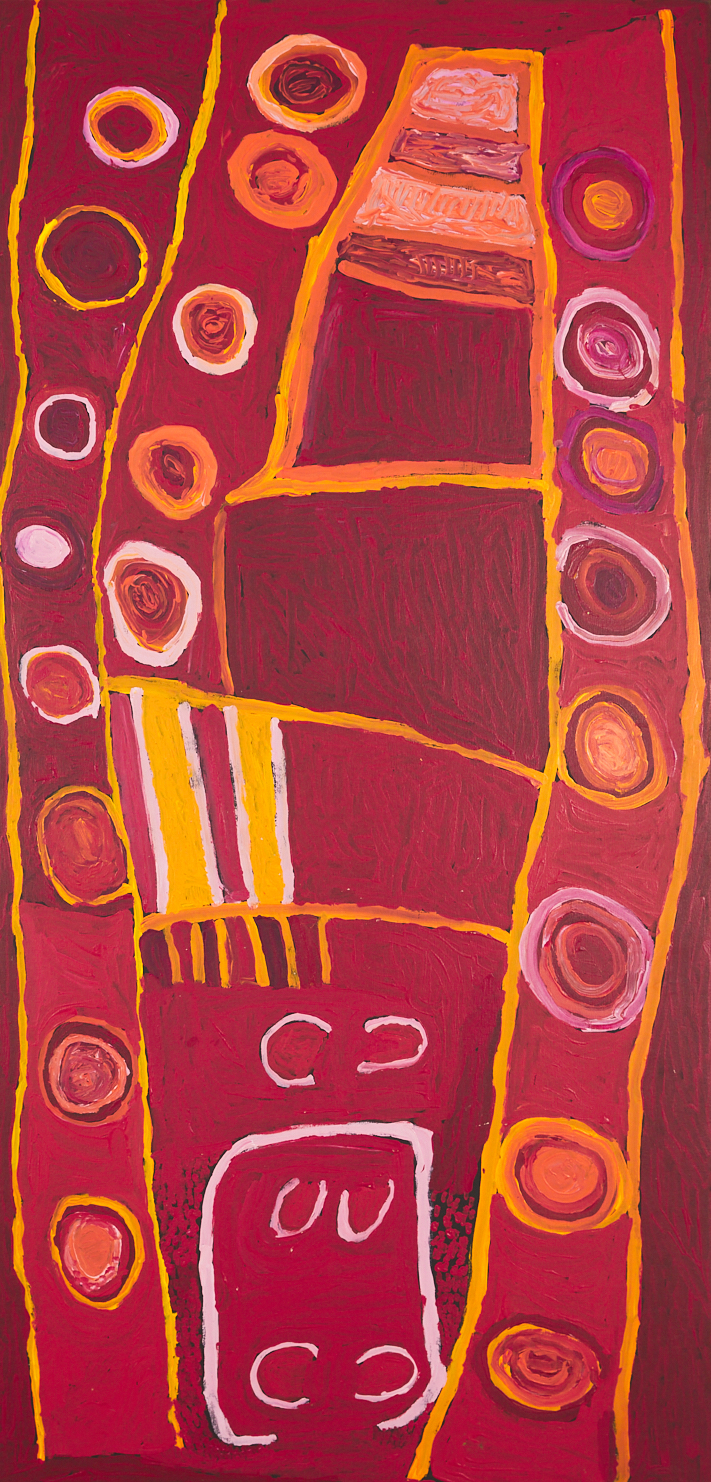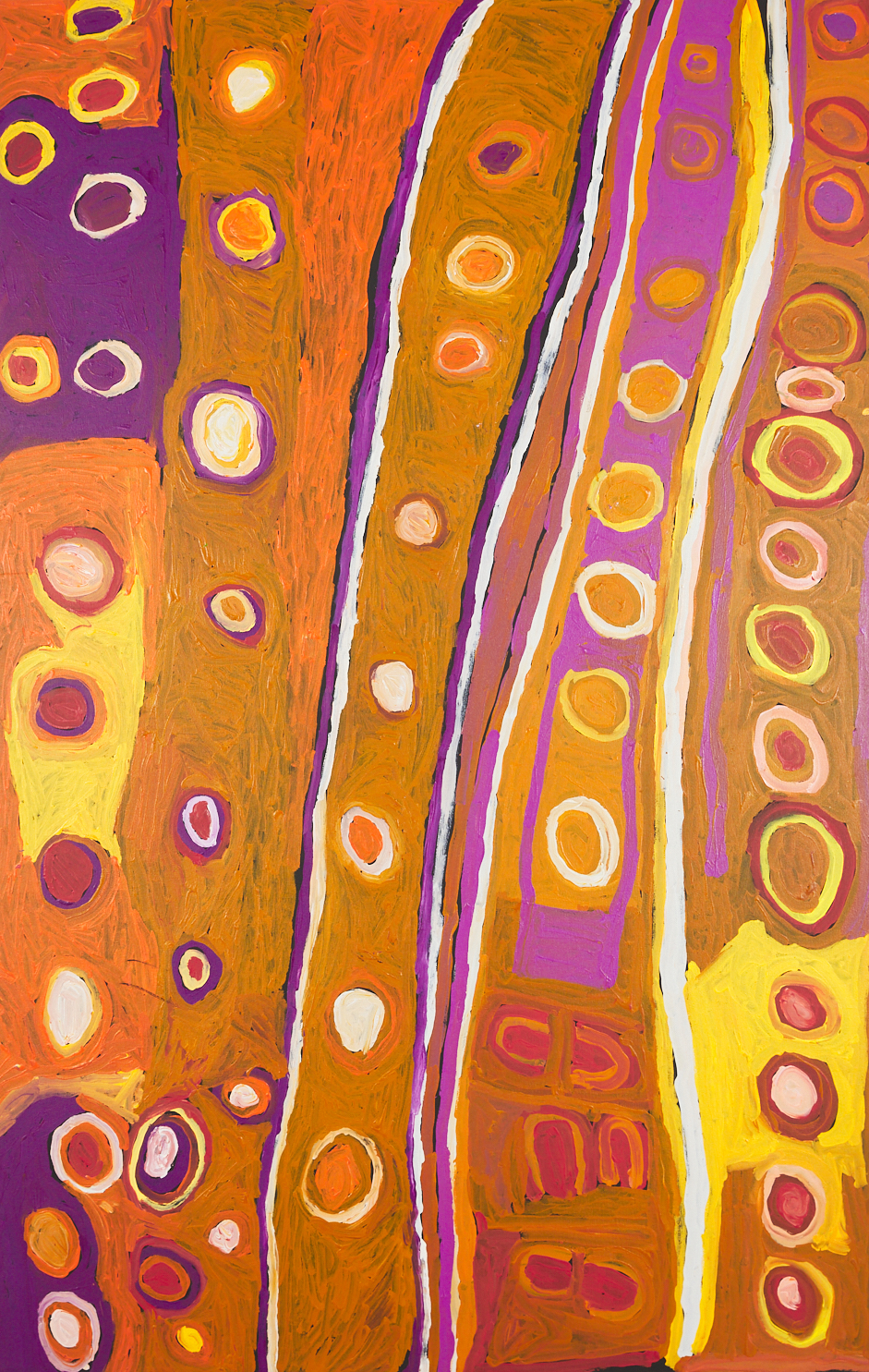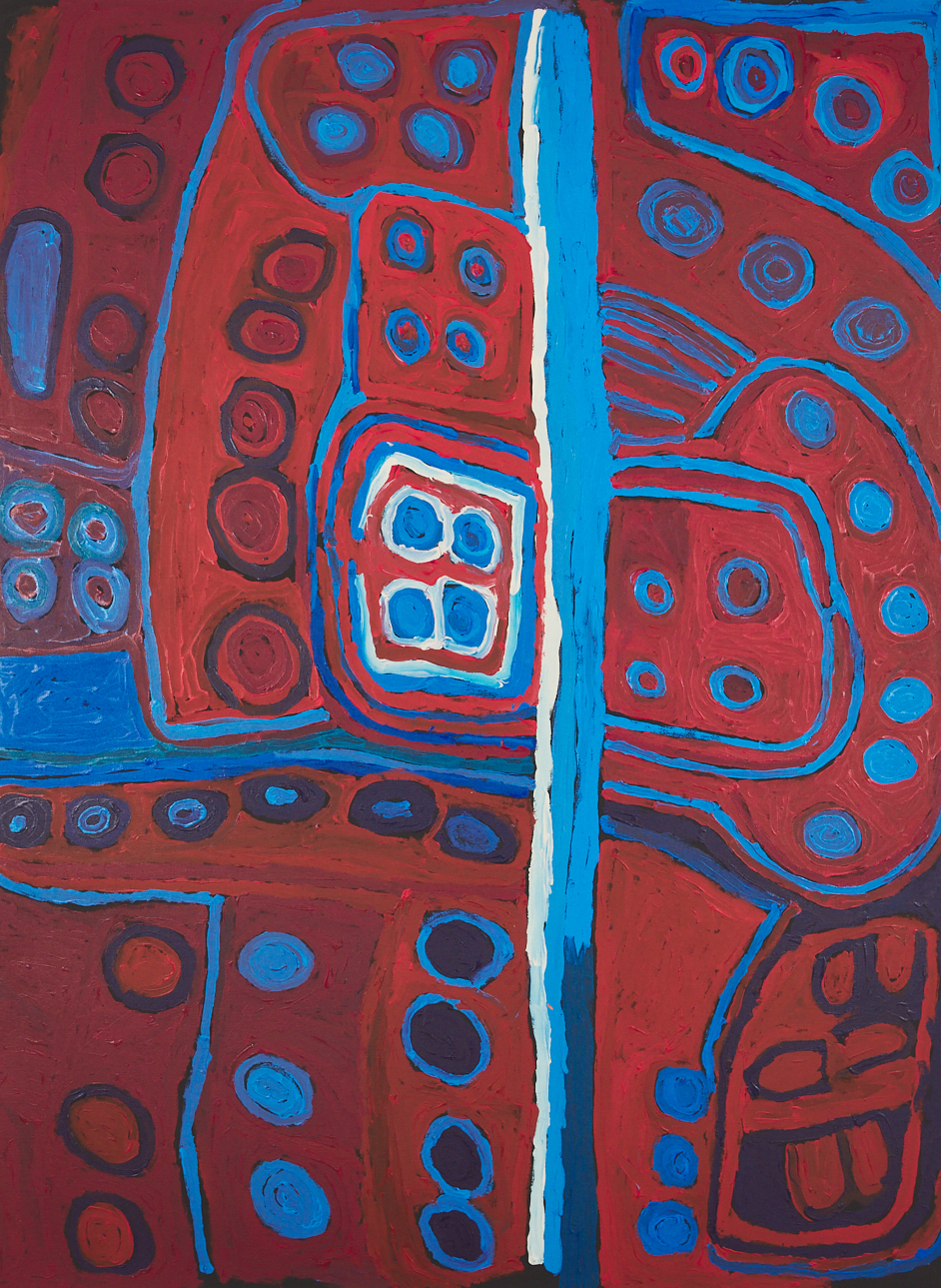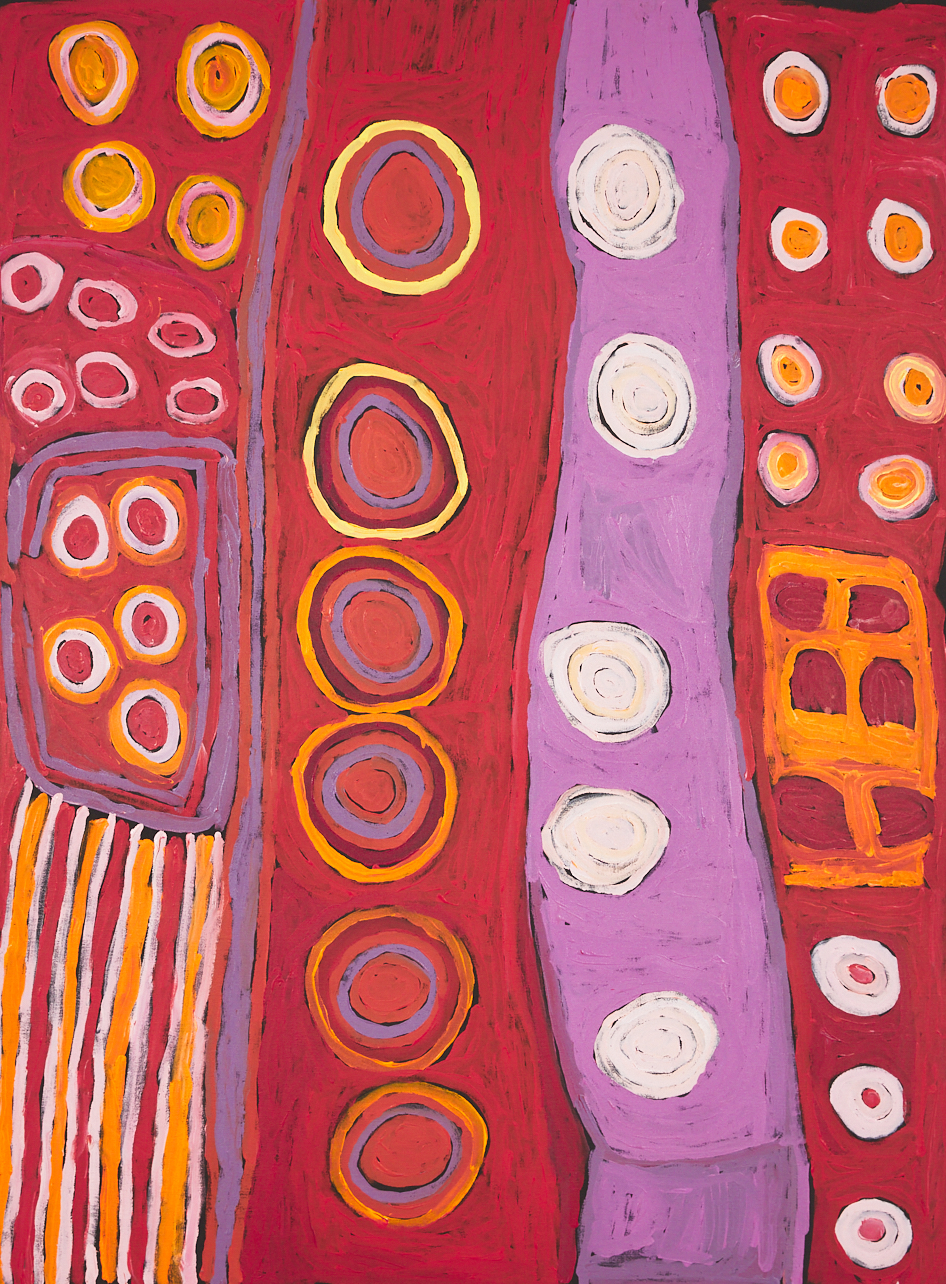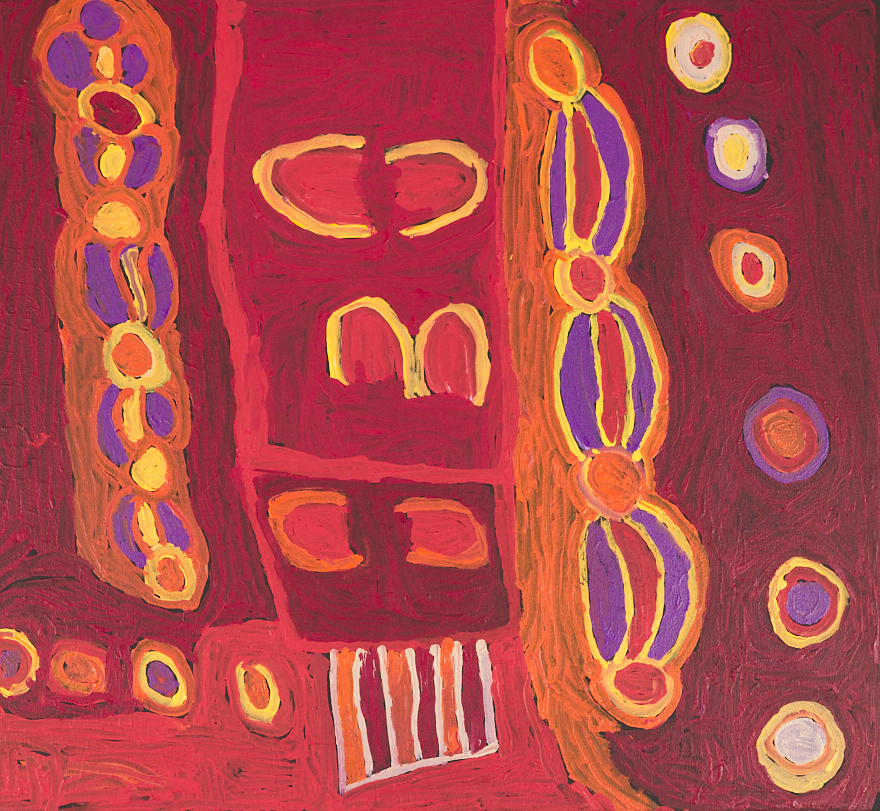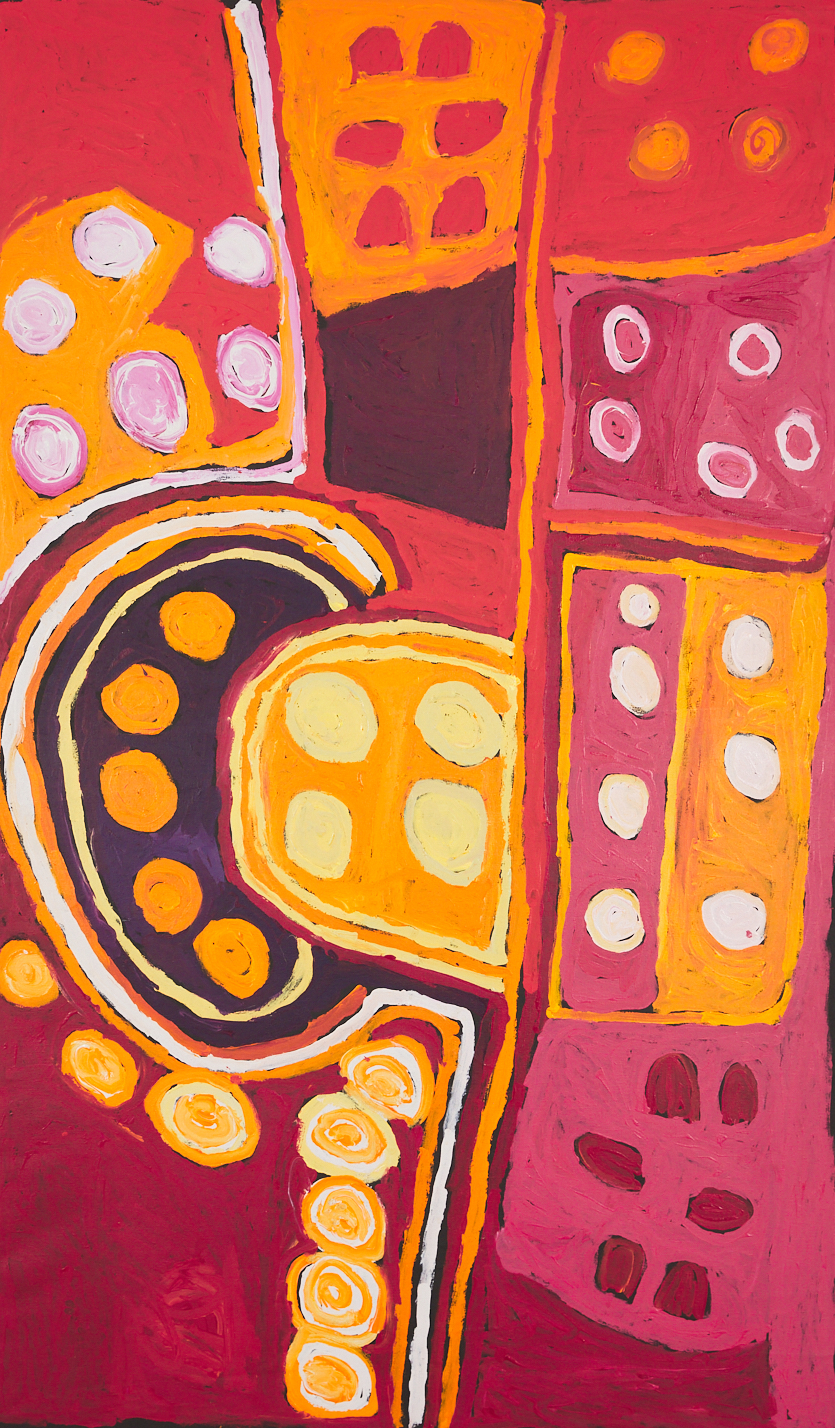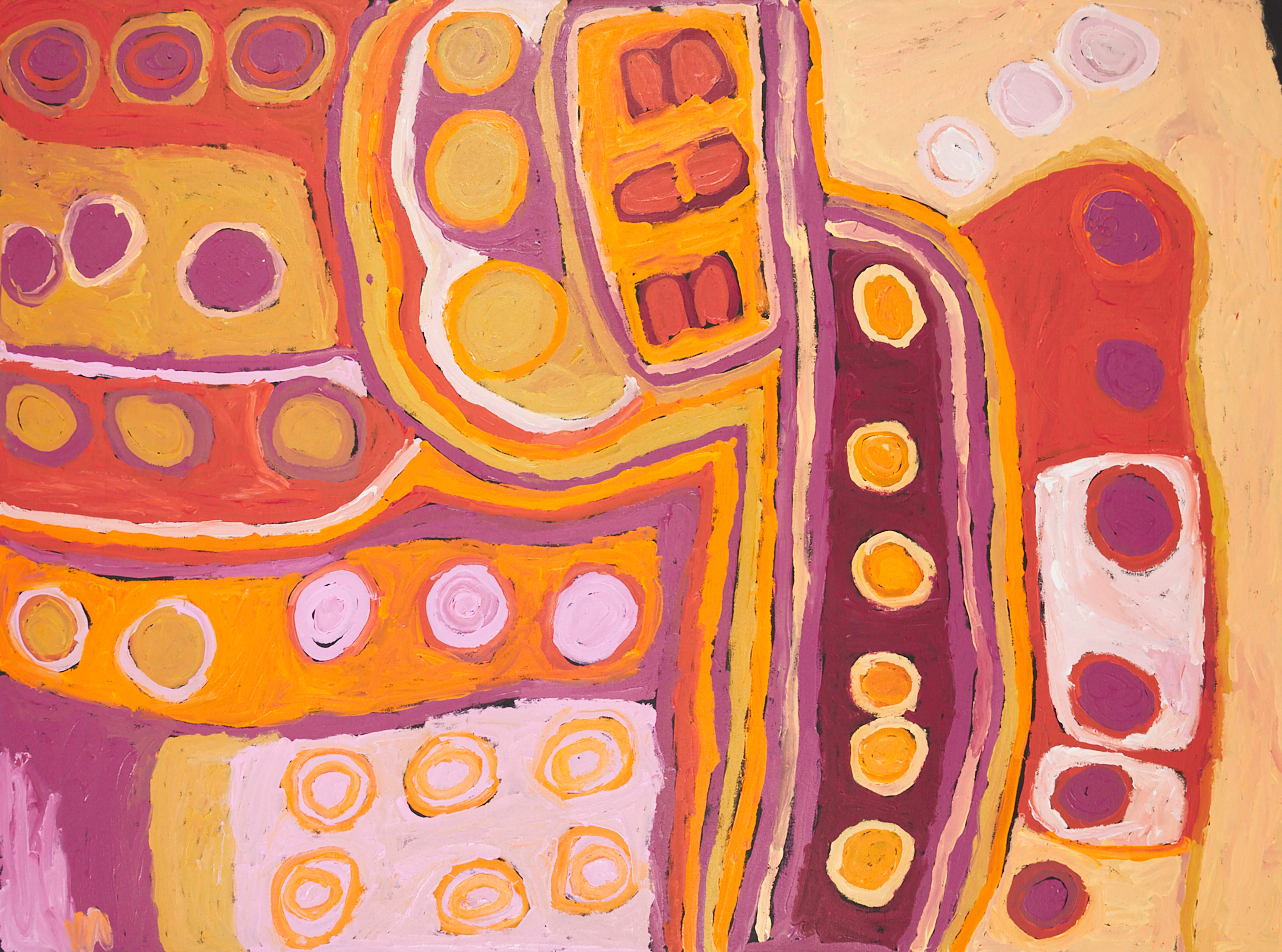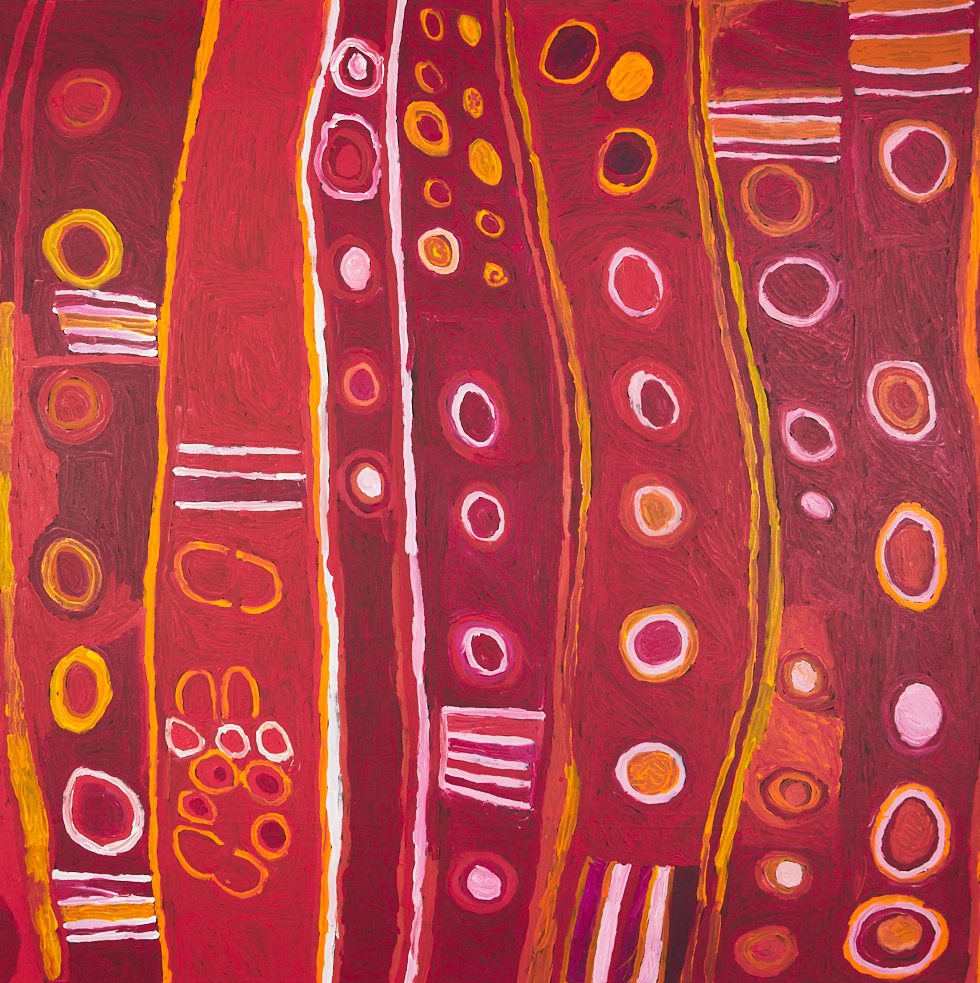
CATALOGUE ESSAY: MINYMA KUTJARA
When Nellie Stewart arrived in the small Community of Nyapari in the Anangu Pitjantjatjara Lands, it was without fanfare. One day she wasn’t there, then a rumour circulated that an old lady from somewhere, was making baskets (tjanpi) in Eadie’s (Angkaliya Curtis) front yard. “Tell her to come and do some painting” we said, but she did not come. After some days, Amanda (Dent) eventually found Nellie who was adamant she was no painter but was persuaded to make her baskets at the Art Centre in the company of others.
Nellie had come from a homeland near Amata Community, aptly named Number 16 as it was sixteen miles west of Amata. She had lived at the homeland, and Amata, since the Homeland Movement of the late 1970’s with her husband, who had passed many years prior and whose country it was. She had one niece living in Amata who visited regularly and looked out for her welfare. She never had children.
As she made small, tightly woven, grass baskets, that would later be sold to NPY Women’s Council for much needed money, she watched others in the Art Centre work on their paintings and happily conversed with them. Nellie was of thin stature and carried no excess weight, she was softly spoken, polite and civic minded, and in a short time span, she would become a constant and integral member of Tjungu Palya.
After a period of adjustment to feel comfortable, Nellie said she would try her hand at a very small painting. Of course, she was slow and measured in her painting: much like her baskets, and although it seemed to take forever, she finished the smallest canvas some days later and quietly smiled at her achievement.

Most Aṉangu artists paint not a picture but a place: and this is especially so for the older, ‘first contact’ people. With knowledge and experience, one can allocate birth lines and families to the Tjukurpa (Creation Story) an artist has the cultural rights to depict. Nellie was no exception, she painted Minyma Kutjara: a prominent women’s narrative from Irrunytju. This meant that as a young girl she must have been living around the Irrunytju area with others we had met in our earlier years. We eventually discovered she was the niece of a well-known Irrunytju artist, Kunjil Cooper, who we had worked with many years prior. Kunjil was the senior custodian of the Minyma Kutjara Songline and shortly before her passing, made a timely visit to Nyapari and visited Nellie.
Minyma Kutjara Tjukurpa (Two Women Creation Line) is an epic creation narrative that follows the journey of two sisters who were separated as children when a big wind came and blew the younger sister far away south. The older sister eventually sets out to retrieve her from a distant tribe where she has been raised in the tradition of others, and return her to her own country and family. On their long journey home, the older sister imparts all the knowledge of the land and creation, performing the associated Inma (sacred dancing) of significant sites throughout their journey. As they approach the Irrunytju area from the south, they throw their wana (digging stick) and it slides along the ground, moving earth as it goes, to form a shallow, water holding depression, known now as Wana Wani: a title Nellie gave to some of her paintings.
Nellie’s first few paintings were meticulously slow and safe before she was offered a brush: so as to potentially move her and her paintings in unknown directions. She was one of the first artists to truly embrace a brush and her compositions began to grow not just creatively but in size also, much to her own amazement. She used a variety of palettes but favoured the known desert colours of red, orange and yellow, with the myriad of tones between. On occasions, Nellie would use highlight colours but they were never stark: always in keeping with the temperament and sensibilities of her individual mark making.
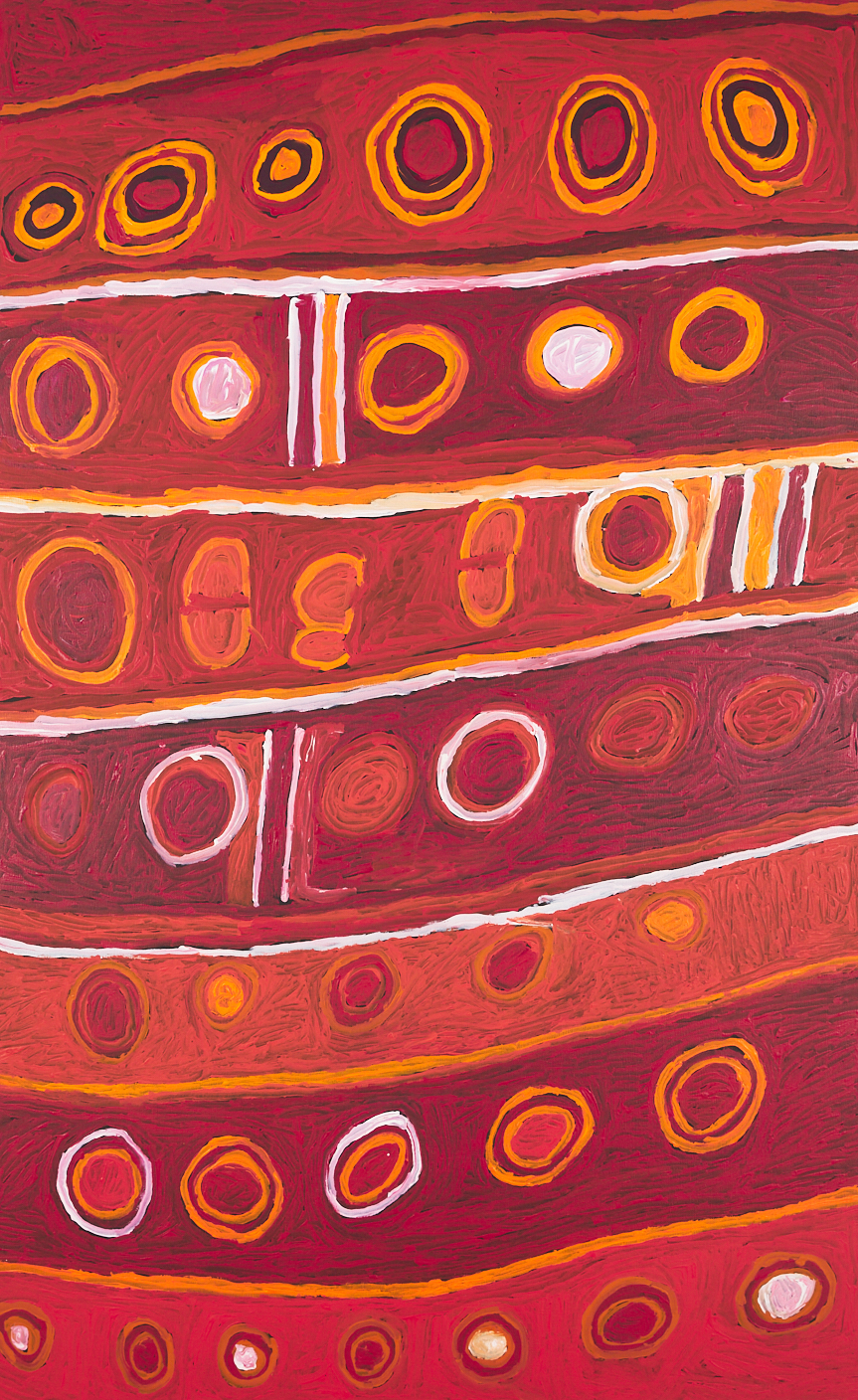
Nellie’s paintings carry a lightness of being: with soft, exposed brushstrokes evident throughout, as if Nellie literally moved the brush through the same red sand journey the sisters took, leaving her own marks in the depicted landscape as a reflection of the many paths they themselves traversed. But behind the compositions was a serious and measured artist who diligently placed her meaning deep within the paintings. She loved painting, the art centre, and the new direction her life had taken- and this is reflected in her work.
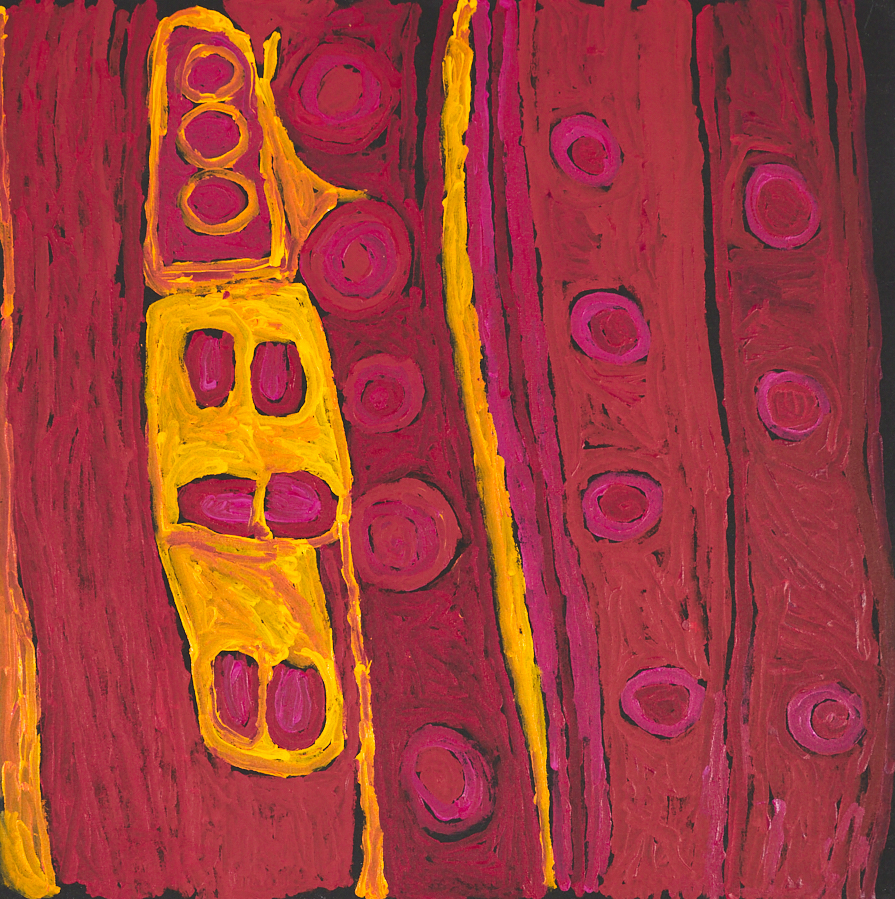
Nellie Stewart may have unassumingly arrived to painting but this inspiring exhibition is a testament to the colourful and individual legacy she leaves behind. And that deserves all the applause you can muster. Get clapping.
BRIAN HALLET







